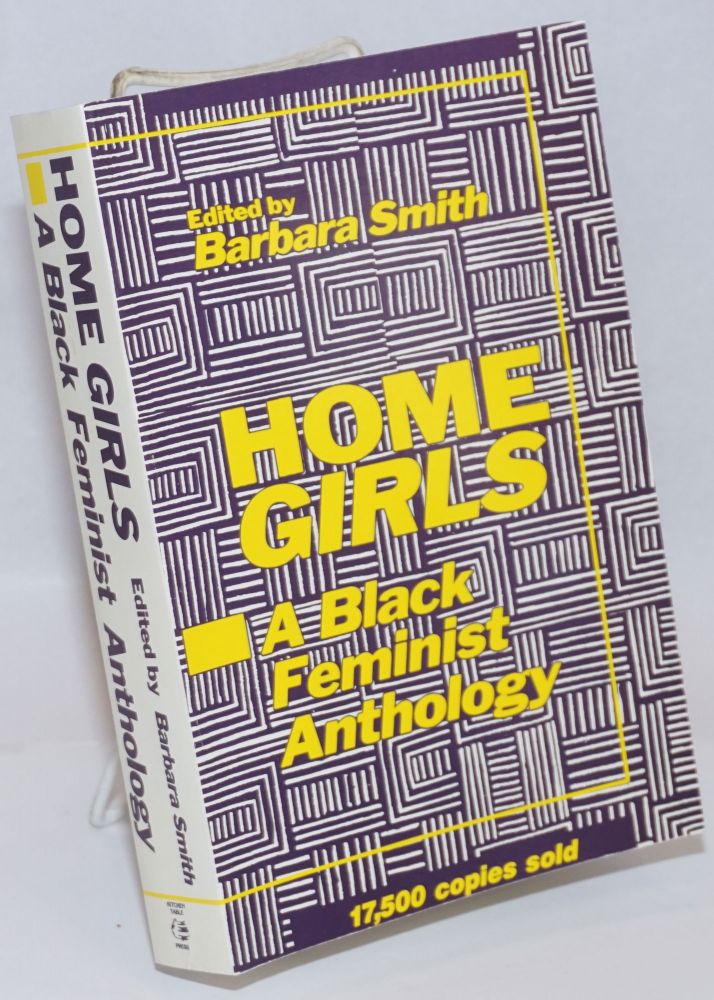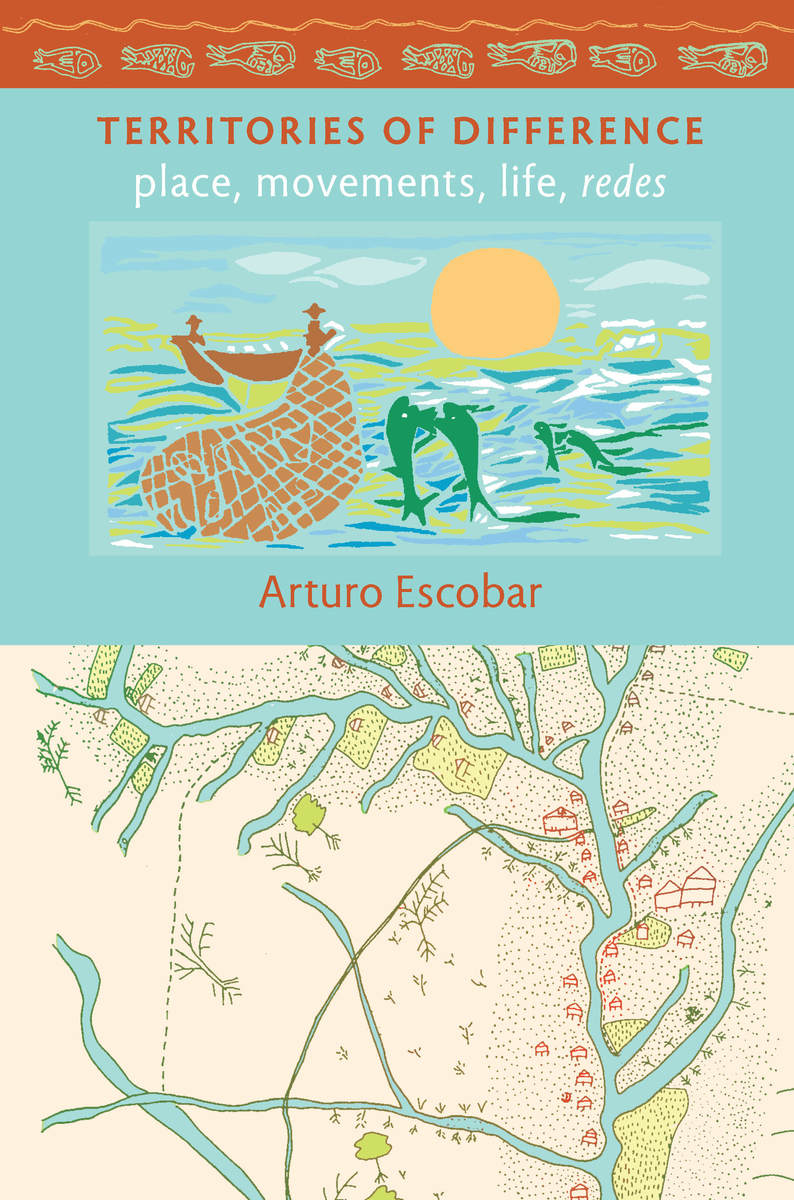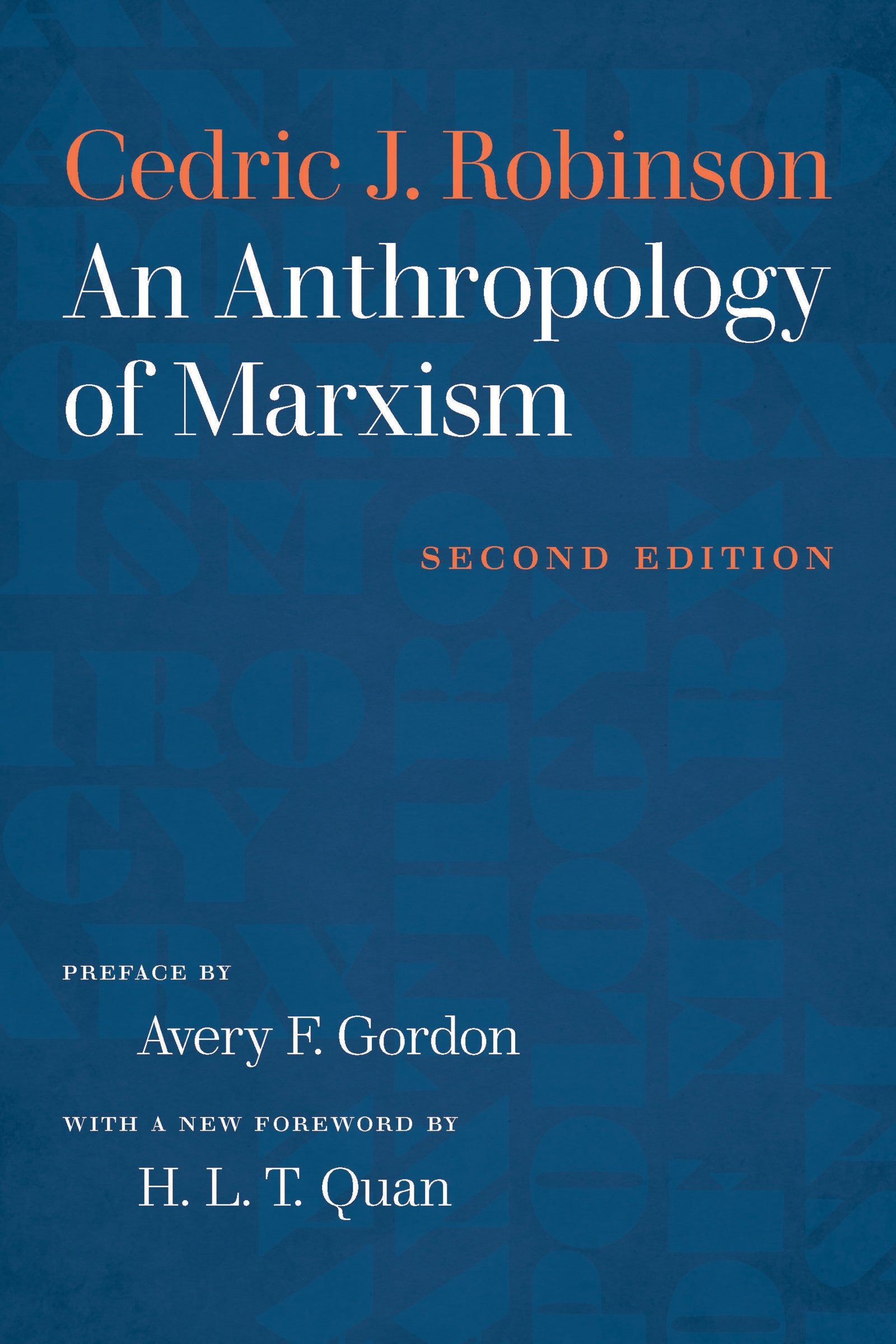Barbara Smith (ed.): Home Girls: A Black Feminist Anthology (1983)
Filed under book | Tags: · black people, feminism, gender, intersectionality, race, sexuality, women

“The pioneering anthology Home Girls features writings by Black feminist and lesbian activists. Since its initial publication in 1983, it has become an essential text on Black women’s lives and writings.”
The book grew out of Conditions magazine’s November 1979 issue, edited by Barbara Smith and Lorraine Bethel. Conditions 5 was “the first widely distributed collection of Black feminist writing in the U.S.”
Contributors: Tania Abdulahad, Donna Allegra, Barbara A. Banks, Becky Birtha, Julie Carter, Cenen, Cheryl Clarke, Michelle Cliff, Michelle T. Clinton, Willie M. Coleman, Toi Derricotte, Alexis De Veaux, Jewelle L. Gomez, Akasha (Gloria) Hull, Patricia Jones, June Jordan, Audre Lorde, Raymina Y. Mays, Deidre McCalla, Chirlane McCray, Pat Parker, Linda C. Powell, Bernice Johnson Reagon, Spring Redd, Gwendolyn Rogers, Kate Rushin, Ann Allen Shockley, Barbara Smith, Beverly Smith, Shirley O. Steele, Luisah Teish, Jameelah Waheed, Alice Walker, and Renita Weems.
Publisher Kitchen Table: Women of Color Press, New York, 1983
Reprint Rutgers University Press, New Brunswick, NJ, 2000
ISBN 0913175021, 9780913175026
lviii+376 pages
Reviews: Melba Wilson (Feminist Review, 1984), Gabrielle Daniels (Women’s Review of Books, 1984), C. Lynn Munro (Black American Literature Forum, 1984), Linda Pannill (Callaloo, 1984), Caroline A. Streeter (Off Our Back, 1984), Hortense Spillers (Tulsa Studies in Women’s Literature, 1984).
PDF (7 MB)
See also This Bridge Called My Back: Writings by Radical Women of Color (1981) and Words of Fire: An Anthology of African-American Feminist Thought (1995).
Comment (0)Arturo Escobar: Territories of Difference: Place, Movements, Life, Redes (2008)
Filed under book | Tags: · anthropology, assemblage, biodiversity, black people, complexity theory, decoloniality, epistemology, ethnography, governance, indigenous peoples, modernity, nature, politics, self-organization, social movements, state, territory

“In Territories of Difference, Arturo Escobar, author of the widely debated book Encountering Development, analyzes the politics of difference enacted by specific place-based ethnic and environmental movements in the context of neoliberal globalization. His analysis is based on his many years of engagement with a group of Afro-Colombian activists of Colombia’s Pacific rainforest region, the Proceso de Comunidades Negras (PCN). Escobar offers a detailed ethnographic account of PCN’s visions, strategies, and practices, and he chronicles and analyzes the movement’s struggles for autonomy, territory, justice, and cultural recognition. Yet he also does much more. Consistently emphasizing the value of local activist knowledge for both understanding and social action and drawing on multiple strands of critical scholarship, Escobar proposes new ways for scholars and activists to examine and apprehend the momentous, complex processes engulfing regions such as the Colombian Pacific today.
Escobar illuminates many interrelated dynamics, including the Colombian government’s policies of development and pluralism that created conditions for the emergence of black and indigenous social movements and those movements’ efforts to steer the region in particular directions. He examines attempts by capitalists to appropriate the rainforest and extract resources, by developers to set the region on the path of modernist progress, and by biologists and others to defend this incredibly rich biodiversity “hot-spot” from the most predatory activities of capitalists and developers. He also looks at the attempts of academics, activists, and intellectuals to understand all of these complicated processes. Territories of Difference is Escobar’s effort to think with Afro-Colombian intellectual-activists who aim to move beyond the limits of Eurocentric paradigms as they confront the ravages of neoliberal globalization and seek to defend their place-based cultures and territories.”
Publisher Duke University Press, 2008
New Ecologies for the Twenty-first Century series, 1
ISBN 9780822343271, 0822343274
xvi+435 pages
Reviews: Laura Fano Morrissey (Development, 2009), Christopher L. Chiappari (Latin American Politics & Society, 2010), Pierre Hamel (American Journal of Sociology, 2010), Lilly U. Nguyen (Interactions, 2010), Rodrigo A. Lima de Medeiros & Guilherme F. W. Radomsky (Sociedade e Estado, 2010, BR-PT), Manuel J. Prieto (Revista de geografía Norte Grande, 2010, ES), Jeffrey S. Juris (American Anthropologist, 2011), Cornelia Butler Flora (J Agric Environ Ethics, 2011), Claudia Steiner (Americas, 2011), Paul Routledge, Juanita Sundberg, Marcus Power, & Arturo Escobar (Progress in Human Geography, 2012).
PDF (5 MB)
Comment (0)Cedric J. Robinson: An Anthropology of Marxism (2001–)
Filed under book | Tags: · black people, capitalism, communalism, communism, community, economics, marxism, materialism, philosophy, race, socialism, society

“An Anthropology of Marxism offers Cedric Robinson’s analysis of the history of communalism that has been claimed by Marx and Marxists. Suggesting that the socialist ideal was embedded both in Western and non-Western civilizations and cultures long before the opening of the modern era and did not begin with or depend on the existence of capitalism, Robinson interrogates the social, cultural, institutional, and historical materials that were the seedbeds for communal modes of living and reimagining society. Ultimately, it pushes back against Marx’s vision of a better society as rooted in a Eurocentric society, and cut off from its own precursors. Accompanied by a new foreword by H.L.T. Quan and a preface by Avery Gordon, this invaluable text reimagines the communal ideal from a broader perspective that transcends modernity, industrialization, and capitalism.”
Preface by Avery F. Gordon
Publisher Ashgate, 2001
ISBN 1840147008
xxii+169 pages
Second edition
New foreword by H. L. T. Quan
Publisher University of North Carolina Press, Chapel Hill, NC, 2019
ISBN 9781469649917, 1469649918
xxix+171 pages
Commentary: Avery F. Gordon (Race & Class, 2005).
Review: Rose Deller (LSE Rev of Books, 2019).
Publisher (2nd ed.)
WorldCat (2nd ed.)
PDF (1st ed., 2001, 9 MB)
PDF (2nd ed., 2019, 2 MB)
See also Robinson’s Black Marxism: The Making of the Black Radical Tradition (1983).
Comment (0)
